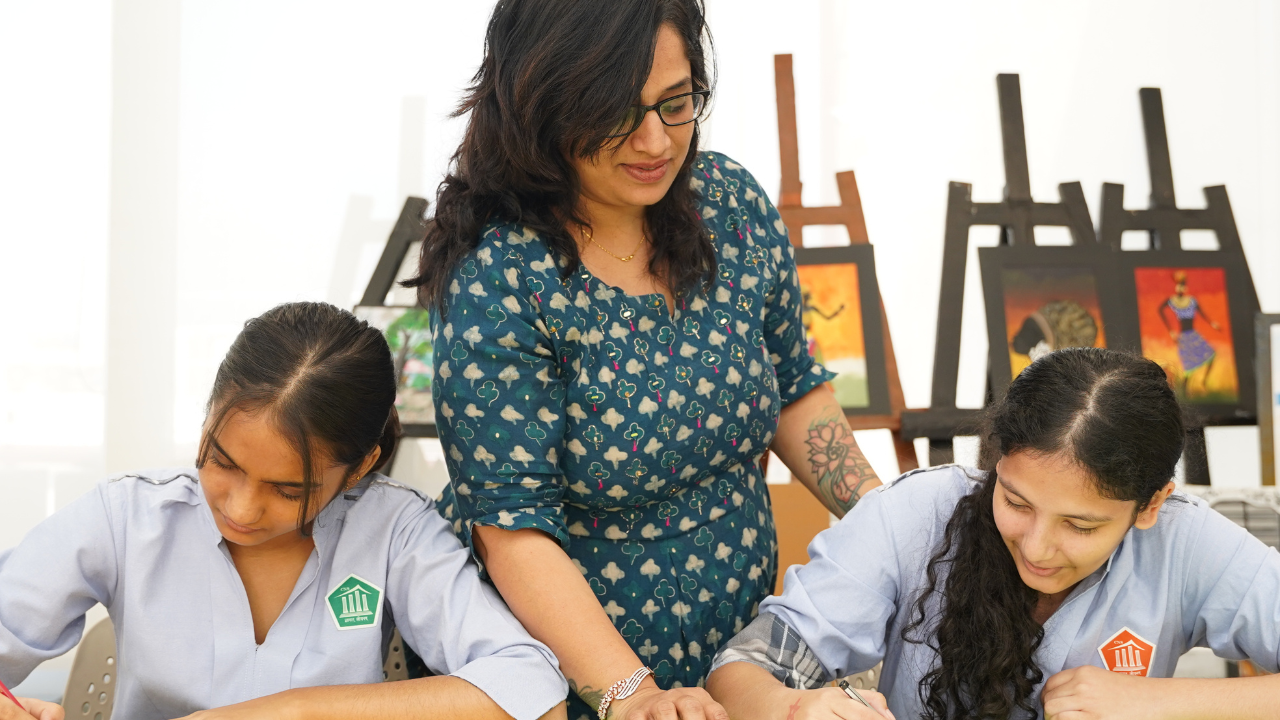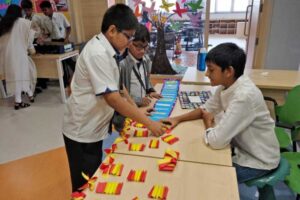Blogs
The Art of Inquiry-Based Learning: A CNS Mumbai Approach to Cultivating Curiosity and Critical Thinking

Chatrabhuj Narsee School (CNS) in Mumbai, a leading school offering the rigorous IGCSE and internationally recognized IBDP curriculum, pulsates with a different kind of energy. Here, learning transcends textbooks and memorization, taking the form of a dynamic journey fueled by questions, exploration, and the relentless search for understanding. At the heart of this lies inquiry-based learning, an approach CNS has championed to cultivate a generation of curious, critical thinkers ready to take on the complexities of a rapidly changing world.
The Essence of Inquiry
What does it mean to learn to be inquiry-driven? Let’s break it down:
• The Spark of Curiosity: Inquiry begins when students are given the space to wonder, to question the world around them. It’s not about teachers feeding students answers, but about igniting the fire within.
• Ownership of Learning: In inquiry classrooms, students take the driver’s seat. They shape their own learning paths, designing questions, conducting research, and testing their ideas.
• Collaboration and Community: Knowledge isn’t constructed in a vacuum. Inquiry thrives on discussion, debate, and the exchange of perspectives within a dynamic learning community.
• Beyond Right and Wrong: The focus shifts from finding the single “right” answer to the process of discovery. Students learn to think critically, analyze information, and form evidence-based conclusions.
• The Teacher as Facilitator: In this model, teachers are mentors and guides. They provide structure, resources, and skillful questioning to propel student thinking forward.
This focus on inquiry aligns perfectly with the IGCSE and IBDP’s emphasis on developing critical thinking, research skills, and independent learning. The IGCSE curriculum, known for its in-depth subject exploration and focus on transferable skills, provides a strong foundation for inquiry-based learning. Students are encouraged to ask questions, conduct research, and analyze information from multiple perspectives. Similarly, the IBDP, with its core focus on critical thinking, theory of knowledge, and extended essay projects, fosters a natural synergy with inquiry-based learning. Through student-led exploration and project-based learning, CNS empowers students to become active participants in their own education, developing the research and critical thinking skills highly valued by both the IGCSE and IBDP programs. Here’s what this looks like in practice:
• Provocative Questions: Learning units are often framed around open-ended questions that get students thinking deeply. For example: “How does climate change impact different populations around the world?” or “What does it mean to be a responsible citizen in the digital age?”
• Student-Led Exploration: Instead of a lecture-heavy model, CNS teachers create opportunities for students to explore their own questions through research, experimentation, and hands-on projects.
• Debates and Socratic Seminars: Discussion is a powerful tool for inquiry. Students learn to articulate their ideas, respect diverse perspectives, and engage in thoughtful debates that push their understanding further.
• Real-World Connections: Inquiry at CNS extends beyond the classroom. Students apply their learning through community projects, internships, and by tackling problems relevant to their local and global communities.
The Benefits: Preparing Students for an Unknown Future
Inquiry-based learning isn’t simply about covering the syllabus; it’s about equipping students with the essential skills to succeed in a world where information is abundant, but the ability to think critically is ever scarcer. Here’s how CNS students benefit:
• Lifelong Learners: Students who learn through inquiry develop an intrinsic love of learning. They become empowered to seek knowledge, to ask better questions, and to continue learning long after they graduate.
• Adaptability and Problem-solving: The world throws us curveballs. Inquiry builds the ability to think flexibly, analyze problems from different angles, and design creative solutions.
• Communication and Collaboration: Students in inquiry environments learn to articulate their ideas, listen actively, and work effectively with others – skills vital for success in both personal and professional life.
• Informed Decision-Making: Faced with a barrage of information, inquiry-trained students become discerning consumers of knowledge. They learn to evaluate sources, separate fact from opinion, and make well-reasoned arguments.
Beyond the Academic: Nurturing Character
The impact of inquiry at CNS goes beyond intellectual gains. This approach plays a pivotal role in shaping students’ character:
• Open-mindedness: Students who engage in inquiry learn to challenge their own assumptions, appreciate multiple perspectives, and revise their beliefs considering new evidence.
• Resilience and Grit: Inquiry can be challenging. Students learn to embrace productive struggle, persevere through setbacks, and see mistakes as opportunities for growth.
• Empathy: By grappling with real-world issues and diverse viewpoints, students develop a deeper understanding of others and a sense of responsibility for their communities.
Chatrabhuj Narsee School stands as a testament to the power of inquiry-based learning. By moving away from passive learning toward active engagement, CNS fosters a community of learners who are not simply knowledgeable but intellectually empowered. As the world grows increasingly complex, these are the critical thinkers, innovators, and leaders our tomorrow demands.





